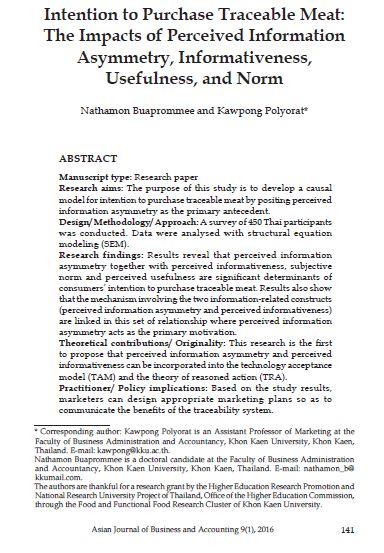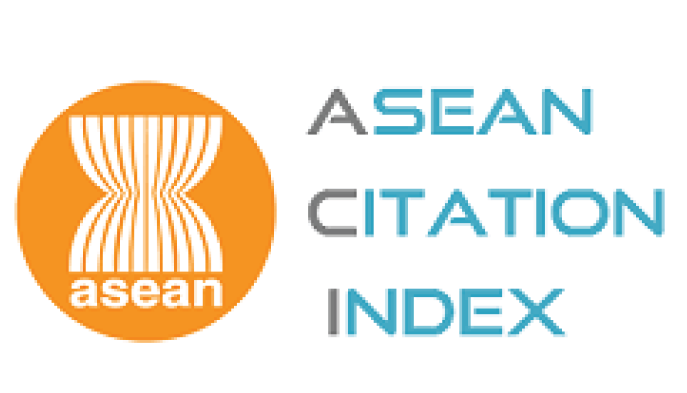Intention to Purchase Traceable Meat: The Impacts of Perceived Information Asymmetry, Informativeness, Usefulness, and Norm
Abstract
Manuscript type: Research paper
Research aims: The purpose of this study is to develop a causal
model for intention to purchase traceable meat by positing perceived
information asymmetry as the primary antecedent.
Design/ Methodology/ Approach: A survey of 450 Thai participants
was conducted. Data were analysed with structural equation
modeling (SEM).
Research findings: Results reveal that perceived information
asymmetry together with perceived informativeness, subjective
norm and perceived usefulness are significant determinants of
consumers’ intention to purchase traceable meat. Results also show
that the mechanism involving the two information-related constructs
(perceived information asymmetry and perceived informativeness)
are linked in this set of relationship where perceived information
asymmetry acts as the primary motivation.
Theoretical contributions/ Originality: This research is the first
to propose that perceived information asymmetry and perceived
informativeness can be incorporated into the technology acceptance
model (TAM) and the theory of reasoned action (TRA).
Practitioner/ Policy implications: Based on the study results,
marketers can design appropriate marketing plans so as to
communicate the benefits of the traceability system.
Research limitations/ Implications: The replication of this research
model with different sample or other products is recommended to
increase the generalisability of results.
Keyword: Meat, Perceived Information Asymmetry, Perceived
Informativeness, Traceability
JEL Classification: M31
Downloads








